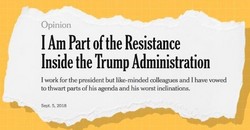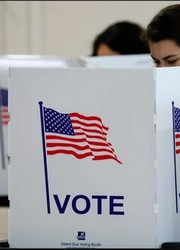On Sept. 9, 2013, two toll lanes were closed to the upper deck of the George Washington Bridge. Many officials such as police and emergency medical workers claimed not knowing of the lane closures during the morning rush hour was an extreme threat to the public safety of the city.
Many wonder what the true intentions were behind this potentially dangerous act. Several theories swirl throughout the media and internet.
However, the prevailing notion is that the closures were to be a form of rebellion and attack against the mayor at a hefty price tag to locals. In the scandal, many of Christie’s employees resigned in fear of backlash. Port Authority Director, Patrick Foye required the lanes be reopened and they were finally reopened after much struggle on Sept. 13, 2013. Members of the Fort Lee community note that people could have very well died in this dangerous attempt to be cynical for a political statement.
The motives of officials have always been questioned throughout the trial; namely Gov. Christie. Time and time again, people speculate whether or not the New Jersey governor had any inclination that this would occur on a Monday morning rush hour. Legal implications and charges were set against Christie’s former Chief-of-Staff, Bridget Anne Kelly and Port Authority employees appointed by Chris Christie; Mr. Baroni and Mr. Wildstein. All three people were charged with conspiracy of fraud for political motives. Eventually, they all resigned.
Nearly three years later, the trial ramped back up media coverage on this 2013 scandal. Records show Ms. Kelly e-mailed Mr. Wildstein about traffic delays that would be imposed in the coming weeks in the congested area of Fort Lee.
In May 2015, Kelly, Baroni and Wildstein were indicted for various charges. The Port Authority, New Jersey Legislature and The Superior Court of New Jersey were among those investigating the scandal. With that being said, legal teams were there to back up Christie as many felt there was no way he could not have known the plans his staff had been brewing.
As the trial continued, many caught wind of Christie admitting that he indeed knew about the lane closures right as they were occurring. Christie notes the scandal is one of the contributing factors for his failures in the race for the White House and why he sidestepped the possibility of become Donald Trump’s running mate.
Knowing of potentially illegal acts would make the governor not only look bad but face the possibly of charges being drawn against him.
Dr. Joseph Patten, Associate Professor of Political Science said, “If Gov. Christie was made aware of the plot to close lanes to the George Washington Bridge before or during the bridge closing that would in my view rise to the level of an impeachable offense because: 1) it means he placed personal partisan interests over the public safety of N.J. residents, including the elderly and children; 2) was actively involved in covering up the scandal; and 3) violated the public trust by repeatedly lying about his role in it.”
Dr. Stephen Chapman, Assistant Professor of Political Science, said, “I would say that if there is clear evidence Christie knew about the closures (which it seems there is), it would not surprise me if there was a motion to impeach. It is important to keep in mind most moves for impeachment at the state or federal level are influenced by politics (Clinton’s impeachment is a perfect example). In N.J., the process is similar to the federal level in that the General Assembly would have to vote on impeachment. If passed, this would spark a trail at the Senate level. Given that both the Assembly and Senate have a Democratic majority (and there has been a somewhat contentious history between Christie and state Democrats), it would seem logical they would move for impeachment. Of course, this is all assuming there is concrete evidence Christie was aware of the lane closures.”
Senior political science student, Jessica Parker weighed in on the topic. “Even if Governor Christie knew about the plan, I don’t think they would bother impeaching him since the process would take longer than the time he has left in office.”
Whether or not a political statement was trying to be made, many residents and public officials alike were deeply angered by the scandal. Traffic was backed up for hours.
Emergency medical personnel claimed they could not get sick patients to the hospital in time. Students were having trouble making it to school.
Delays in the trial proceedings for Ms. Kelly and Mr. Baroni finally allowed for a court date to be set which began on Sept. 12, nearly three years after the incident first took place. For years through public statements and acknowledgements in media outlets Governor Christie claims he had no prior knowledge of the plans.
However, in this Sept. 2016 trial, Mr. Wildstein claimed he notified Port Authority employees of plans to shut lanes of the George Washington Bridge in Fort Lee. He further testified that there would be trouble for the town as this demand came from the governor’s office.


